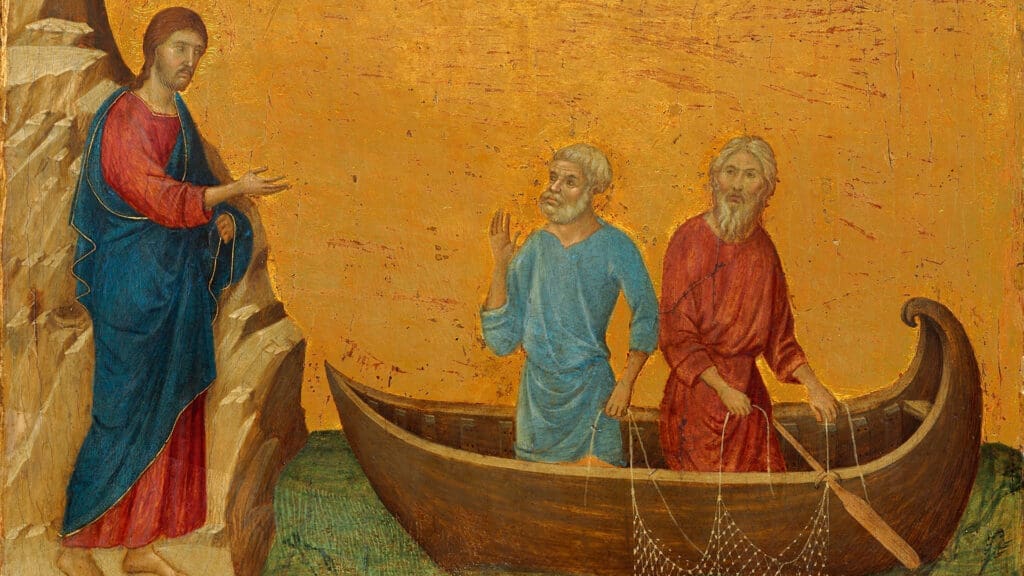T
The collective social conscience of Western culture finds itself unsettled. Seventy-five years after the Second World War, and the raft of institutions built to protect peace and human dignity following that war, and we are staring into a disillusioned twilight, unsure of the character of the era that comes next. Liberalism is on the defensive, its values contested by a younger generation whose experience of freedom has been one of loneliness, not agency. Many of us feel increasingly tempted to surrender to totalizing explanations as to why we feel anxious and unmoored, with those explanations (cough! ideologies!) granting clear scapegoats, self-satisfying renderings of history, and a seductive language of belonging—how you are in and others are out.
Everywhere one looks, it seems, there are more threats to life and human dignity than there is the will or social cohesion required to enact commensurate solutions: wars and rumours of wars, accelerating climate change, an educated elite out of touch with the working class, mass migration and ever-growing numbers of displaced people, unchecked technological advances, loss of a coherent moral order, unprecedented rates of suicide (and suicidal violence). Fear has proved effective (once again) at organizing our sense of chaos. It is all so easy to diagnose, and yet it feels too unreasonable—too bewildering—to hope.
But hope, at Comment, is what we are about. Not as a passive wish, but as an act of vision and the glue of a community that will endure. As we seek to articulate this vision through a diverse choir of voices at once thoughtful yet tested in the trenches of praxis and institutional innovation, we row in the currents of a two-thousand-year-old tradition that has proved itself capable—time and again—of subverting the direction of popular despair and reviving the parched longings of human beings created to co-create with God.
Our Lens
Comment was created by Cardus to explore the range of Christian answers to the most urgent public questions. We were founded with an appreciation for the plurality of spheres in democratic civil society, and for the ways in which a robust public theology is an indispensable—if increasingly sidelined—ingredient in strengthening the bonds of our common life. Our work is premised on the following six convictions:
1.
We are Christian humanists, those who believe that Jesus Christ—God become man—is the ultimate measure of what it means to be human. We believe that every human being is created in the image of God, whole persons who are at once fallen yet gloriously endowed, finite and dependent, yet deserving of infinite dignity. We seek to stay true both to the wonder and to the woundedness of life this side of the veil, even as our eschatology floods us with hope: Jesus has walked with us, died, risen, and ascended, and he will come again to make all things new.
2.
We believe it’s a time to build, that the creative imagination and the Christian imagination are mysteriously linked. We want to begin with the Yes in Christ, not our own noes. While there is an important role for criticism baptized in a study of what is true, good, and beautiful, it is a means to an end—the basis for wise repair and imagination, not the justification for destruction or erasure. We are committed to keeping orthodoxy and orthopraxy married, taking seriously our job to translate between them.
3.
We believe in institutions: government, guilds, families, schools, universities, the church. We recognize that in our age of individualism, institutions are often painted as the enemy. We try to change that, seeking to shape the character of today’s most formative institutions while exploring what kind of reimagined social architecture might compel the next generation’s trust.
4.
We believe in the transformative power of encounter—encountering reality, encountering those unlike us. Loving enemies is bedrock for Comment, hospitality core. We are champions of the difficult room. We believe in the deeper truths that can be discovered when different life experiences and distinct sources of wisdom are gathered around one table. We intentionally publish arguments with which we disagree, including those who don’t hail Christ as Lord, not for the sake of pluralism without conviction, but because Christians have always better understood the contours and depths of their faith when crystallized through exchanges with strangers turned friends.
5.
We believe Christianity is perpetually on the move. There is no sacred capital. While the audience we serve is navigating a North American context, we serve this audience from an understanding that Christianity is an intercultural, polyglot religion. At a time of rising religious ethno-nationalism, we insist that no culture can claim to represent the true form of Christianity, and we actively seek for our authors and partners to reflect the global reality of the church.
6.
We believe there are different ways of knowing—that the thinker and the practitioner have equally valuable wisdoms worth airing, that relationship and context matter for the ways in which we perceive reality, that the child with Down syndrome perceives truths that a Nobel Prize winner cannot, and that there is a need for those who inhabit these myriad ways to share space and learn how to pursue understanding—perhaps even revelation—together.






